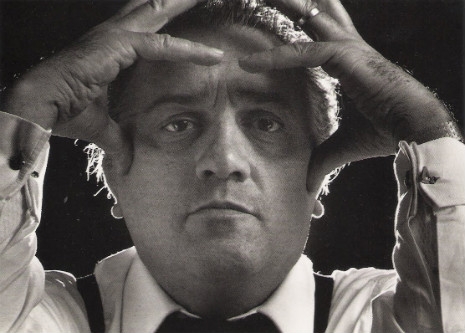
Federico Fellini had been working on his 12th feature film Casanova. It had been a difficult experience. Filming had taken over a year to complete, and Fellini had spent in excess of $10m, using up 3 producers. He claimed he hated his leading star, Donald Sutherland. There had been union disputes, and the negative had been “kidnapped” and returned. Then the Vatican declared one of Fellini’s previous films “obscene”. But the great master was unfazed by all of this.
‘I’m sorry if I disappoint you by not describing the tears in my eyes, my role as the victim, the artist forced to sacrifice his own integrity and purity,’ Fellini explained in an interview with the BBC in 1976.
‘I’ve never compromised. But then I’ve always been lucky.
‘On the occasions that I could be reproached for compromising, was directly attributable to my own laziness, because I was in love, or I wanted to finish the film. Or, simply because I was fed-up by it.
‘I don’t think absolute liberty is necessarily a good thing for people creatively. As far as I, or people like me are concerned.
‘Being Italian, I have a particular type of psychology: I am an artist who is conditioned to the idea of delivering his work to All.
‘The Popes in the 14th and the 15th century, or the great Lords of days gone by, they always used to commission painters or writers to create a madrigal or a crucifixion for them. It’s this necessity of an obligation - a contract - it’s an authority that forces you to work.’
For Casanova that authority was the American film company. Fellini may have had control over the designs, the sets, the costumes, the cast, the script, and the direction, but ultimately Fellini was answerable to his producers. This was partly why he had chosen to work with Donald Sutherland.
‘Well, in Casanova,’ said Fellini, ‘There was a precise plan for a certain type of character. Because the film is an American film - made by an Italian crew for a major American company. My contractual position is that the producer made me make the film in English.’
Fellini made Sutherland have his head partially shaved, his eyebrows removed and his teeth “cut” by 2mm. A false nose, chin and eyebrows were then added. Sutherland had to rethink how best to interpret Casanova’s experience in terms of 18th century expression.
Fellini wanted authenticity, and he knew his film would cause outrage from the prudes and hypocrites of his homeland, who had already burnt copies of The Last Tango in Paris on the streets of Rome.
‘You’ve got a real moralistic tyranny in Italy,’ Fellini said. ‘It is fast coming to the point where people are being told how to make love, how to dress, how to shave, how to look at a woman. I feel completely bewildered and confused. Clearly what’s going on in our country is a real mess. I cannot honestly see how we are going to extricate ourselves.
‘The Italians are like confused children. They’ve had a thousand years of Catholic up-bringing which has left us uncertain in our context of life. We are incapable, apparently, of making personal judgments because we have always asked other people. We ask our fathers, the teacher, police, the ministry, priests, the Pope. We have always asked others to give their opinion for us, without ever having to judge for ourselves individually.’
Previously on Dangerous Minds
Pier Paolo Pasolini: A rare interview on the set of ‘Salò, or 120 Days of Sodom’
With thanks to NellyM